Essex mother 'may go hungry' to save money to feed children
- Published
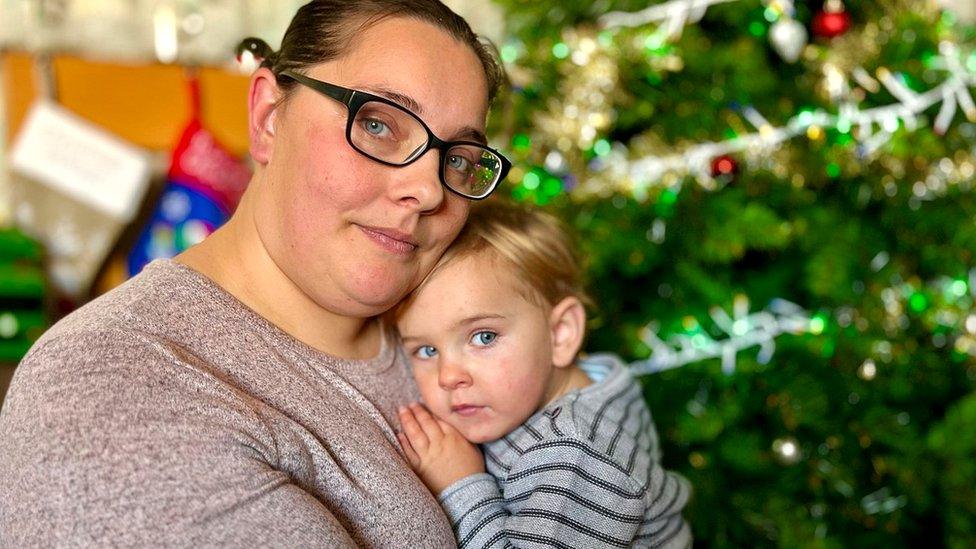
Donna, a mother of four who lives in Clacton-on-Sea, said her rent is rising from £995 to £1,195
A single mother-of-four says she is having to consider whether or not to feed herself some nights so she has enough to feed her children, despite government energy subsidies saving £900 a year for a "typical" household. BBC Politics East has been looking at how price rises are hitting people and businesses.

'These are the sacrifices'
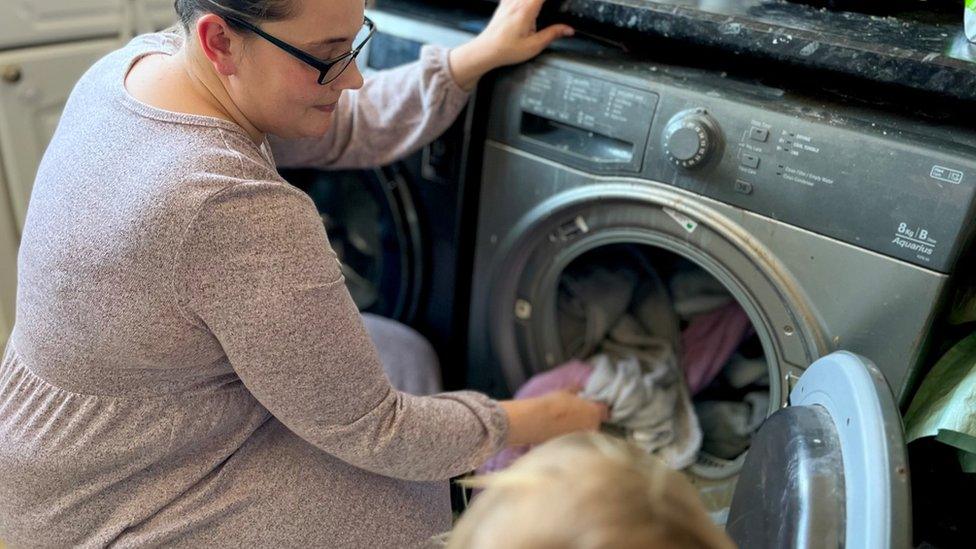
Financial worries were keeping Donna awake at night, she said
Donna, a mum from Clacton-on-Sea in Essex, who did not wish to give her surname, said: "The rent, which is £995, is now going up to £1,195. It does keep me awake some nights.
"I do get a little bit stressed out, but I never let the children see that, because I don't want them to see mummy stressing.
"When the children are at their dad's, I don't eat. I think, what is the point of turning the electricity on to cook something? What's the point of feeding myself?
"The children are being fed. These are the sacrifices people are going to be making.
"I'm not the only one. People will choose to feed their children, not feed themselves."

'How did we get into this situation?'
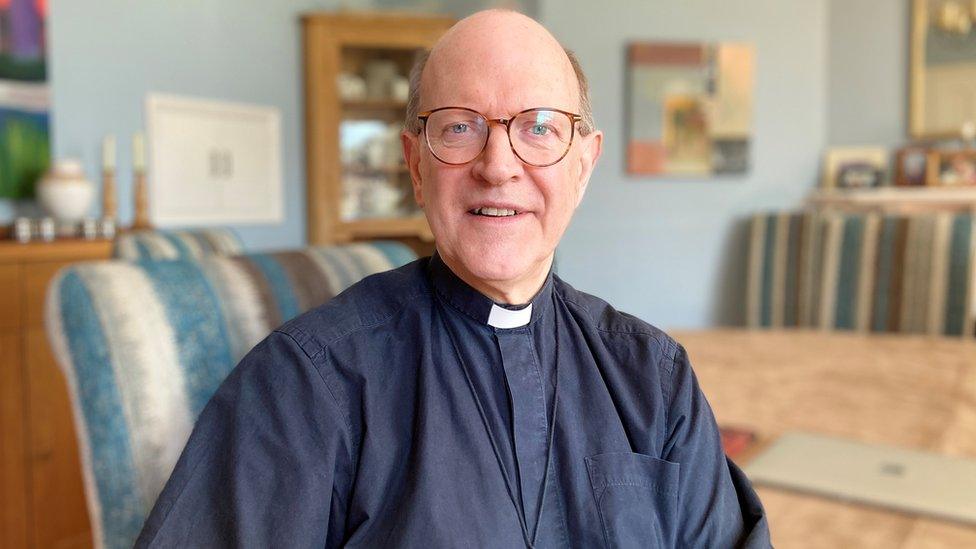
The Right Reverend Martin Seeley sits in the House of Lords
Lord Bishop of St Edmundsbury and Ipswich, the Right Reverend Martin Seeley, said: "We're seeing families who would never have dreamed of coming to a top-up shop or a food bank seeking food every week and they are coming in because, even though they are working parents, they simply can't put food on the table for their children.
"And you just have to wonder how did we get into this situation? What is going on in a country that is prosperous... with a decent welfare system?
"I think the provisions like the energy price cap, like the cost of living allowances that are being provided are not really reaching those in greatest need. I think more could be done to target what is being provided to reach those in greatest need.
"For example, because of my age I receive a winter fuel allowance. I don't need that. So I pass it on to the community foundation here in Suffolk to give to other people."

'A couple of tough years'
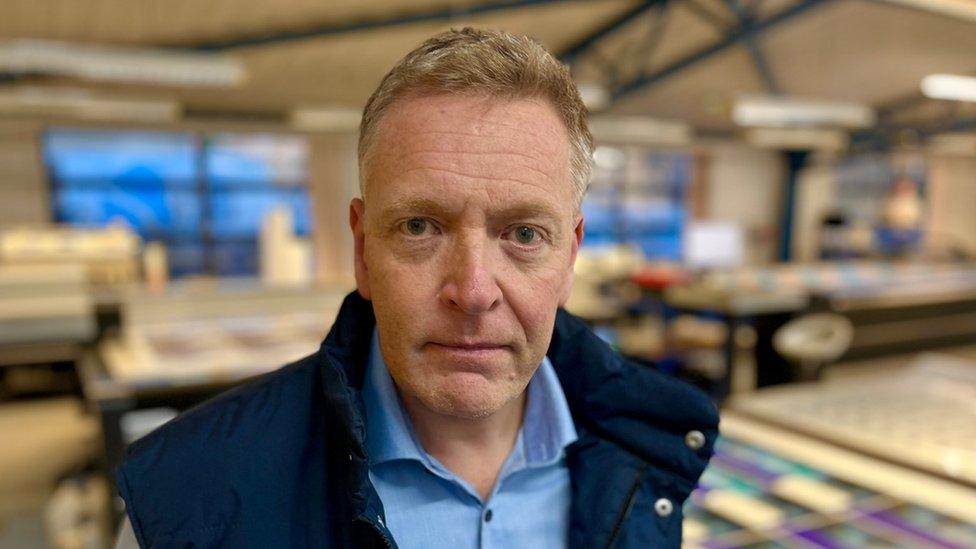
Andrew Moss said his business had been hit by increasing costs - some of which had risen four-fold
Andrew Moss, managing director of Horizon Retail Marketing Solutions in Ely, Cambridgeshire, which makes displays for firms.
"Every single one of our costs has increased, two-fold, three-fold or four-fold [recently]. Our raw material costs have increased by more than 300%," he said.
"We have just got to deal with it... but we've got to deal with it on a weekly basis."
Mr Moss said the business could ride the storm and sacrifice profits, but that would mean no investment, and no investment meant no growth.
"I don't mind having a tough year. I don't mind in having a couple of tough years. But if we can't invest, that's going to have an impact on us in the long term, not just the short term," he said.
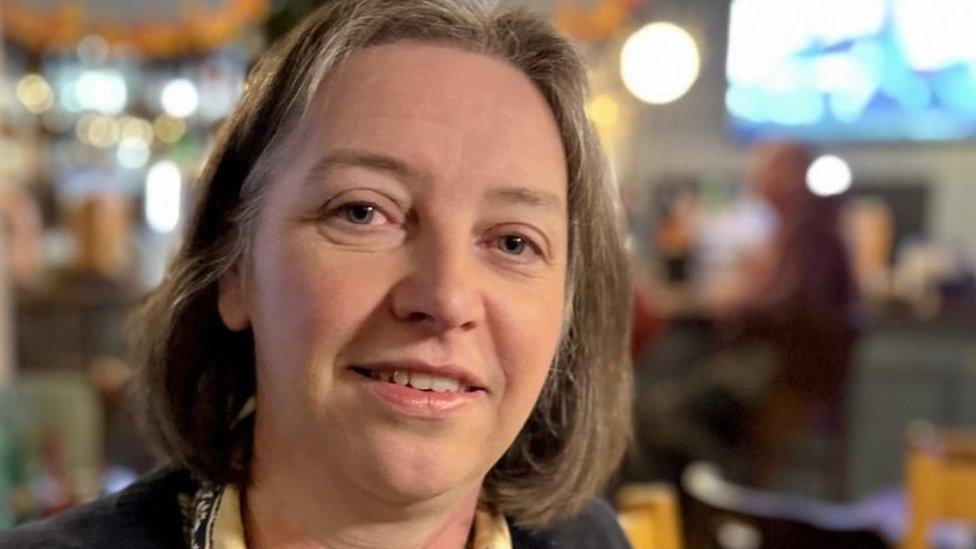
Publican Victoria MacDonald believes value added tax could be reduced to help pubs
Victoria MacDonald, landlady of The Cellar House pub in Eaton, Norwich, said the government could do more to help the hospitality trade.
"As part of the Campaign for Pubs one of the things we've called for is the reduction of VAT [value added tax]," she said.
"Now people might say a reduction in VAT means there's less money to go into the government. But if that means fewer businesses are closing then that is less of a cost to the government.
"So helping us a little bit more, that keeps us going and will ultimately will reduce the impact on government budgets."

'Difficult time'
A Department for Business, Energy and Industrial Strategy spokesman said: "We know this is a difficult time for businesses and households and we remain firmly on their side.
"We have acted to deliver the Energy Bill Relief Scheme which means businesses will pay less than half the predicted wholesale cost of energy this winter.
"We have also limited the amount suppliers can charge through the Energy Price Guarantee, saving a typical household over £900 this winter."
You can see more on this story on Politics East on BBC One on Sunday, 18 December at 10:05 GMT, with it also available on BBC iPlayer afterwards.

Find BBC News: East of England on Facebook, external, Instagram, external and Twitter, external. If you have a story suggestion please email eastofenglandnews@bbc.co.uk, external
- Published14 December 2022
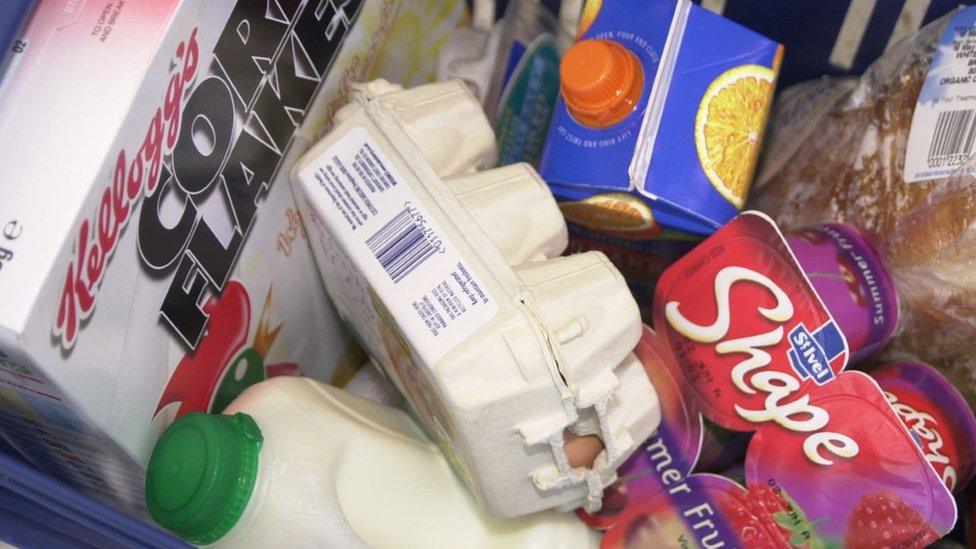
- Published7 September 2022
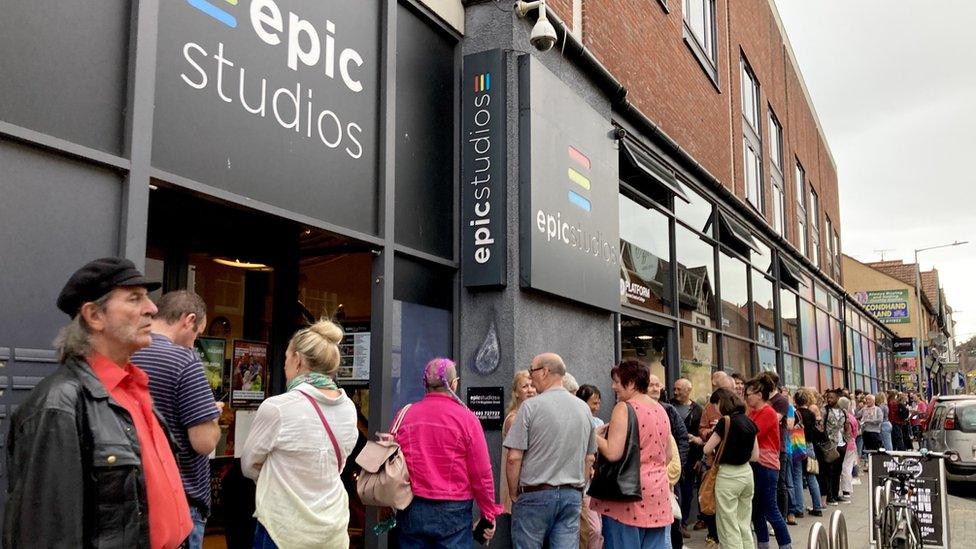
- Published5 September 2022

- Published10 February 2022
